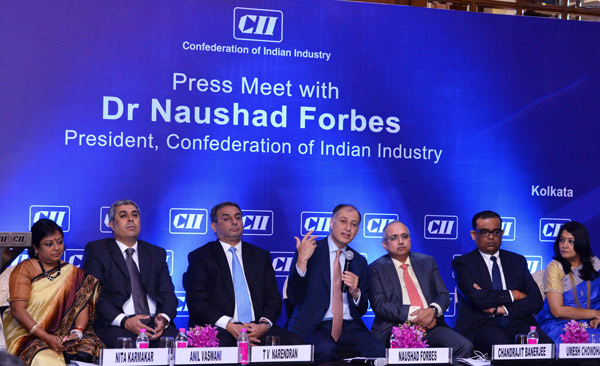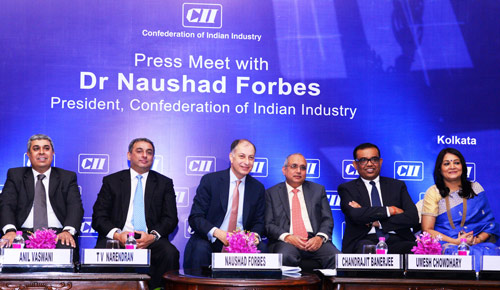
Active industry-institute engagement can boost education sector: CII President
“The progress of the GST Bill is one of the biggest economic reforms seen in recent years. We have been actively pushing it for many years now, working with government officials and within CII too. It is one of the biggest tax reforms to take place in the country in the last 25 years, and it will definitely show up in the increased well being of the country in the long run," said Forbes.
“The GST will particularly benefit consuming states in terms of revenue buoyancy and even West Bengal, which used to be a producing state, but is now primarily a consuming state," said Forbes, adding that a rate of 18% should be fine on the grounds that it would be revenue neutral and neither would it be too high to damage consumption of goods and markets.
“Even from a longer tax buoyancy perspective...where many other countries have introduced similar goods and services taxes, where their experience has been similar, this is the ideal rate and we are confident about it," said the President.
The President also spoke on the government’s decision to routing the fertiliser subsidy through a direct benefit transfer program instead of providing it as a subsidy to producing companies.
The budget mentioned that every new government scheme would have a clearly defined outcome and a sunset clause, beyond which the scheme will go away.
This is particularly beneficial since India as a country has always struggled with innumerable schemes but relatively little action. This will now ensure an automatically speedy process where a scheme will run for a few years and stop ultimately, elaborated Forbes.
Forbes also commented upon the CII’S theme for the year, which is building national competitiveness based on the premise that productivity is at the heart of economic wellbeing.
"Our goal for this year is to work with the government to put together an agenda on how we can foster innovation as a country and within the firm," said Forbes.
With regard to sustainability, Forbes stressed on their commitment made in Paris to reduce their carbon emissions to GDP ratio, further adding that a gender parity goal was also on the agenda.
Speaking with utmost clarity on the reforms in the education sector, Forbes said, “There is a lot of potential in the education and higher education sectors, and right now the government is taking an active interest in this area, and the benefits will show in the next fifty years."

Thirty years ago, 85% of all engineering seats were in government colleges whereas now, 90% of all engineering seats are in private colleges and this shift has occurred mainly because of a massive growth in the private education system, he said.
The CII President said that colleges are more likely to attract students by having decent faculty members and facilities.
Many engineering colleges have an oversupply of seats. This will also force them to think of improving teaching facilities and provide better teachers to remain competitive, he said.
"One way to address the quality problem is through active institute-industry engagement," the CII President said.
With regard to the steel sector, Forbes said, “The steel sector is plagued with massive overcapacity in China, nearly 400 million tonnes, while total Indian production is 200 million tonnes."
While protective tariffs are being applied, these should be temporary measures to help the industry sort out problems in the short run to become more competitive locally.
T.V Narendran, Chairman, CII Eastern Region said that before January 2015, no one from the steel industry was asking for any help and there was a 0-5% import duty. The problem happened because suddenly there was a crisis in China.
“But when you have a 'Make in India programme, how do you protect investors? Investors put in Rs 200,000 crore in building steel capacity and when there is a problem, you don't do anything. Then the question to ask is why would anyone put in capacity in India? India has raw material and market and should be an ideal place to make steel," he said.
Secondly, India is not unique as all the world countries are taking action which is only natural and even the WTO (World Trade Organization) allows that. The process of anti dumping takes time and the government recognises that and hence there are temporary measures and we don’t see any of this as long term. The WTO-compliant duty is also only natural," said Narendran.
(Reporting by Tanushree Sen)
Support Our Journalism
We cannot do without you.. your contribution supports unbiased journalism
IBNS is not driven by any ism- not wokeism, not racism, not skewed secularism, not hyper right-wing or left liberal ideals, nor by any hardline religious beliefs or hyper nationalism. We want to serve you good old objective news, as they are. We do not judge or preach. We let people decide for themselves. We only try to present factual and well-sourced news.







